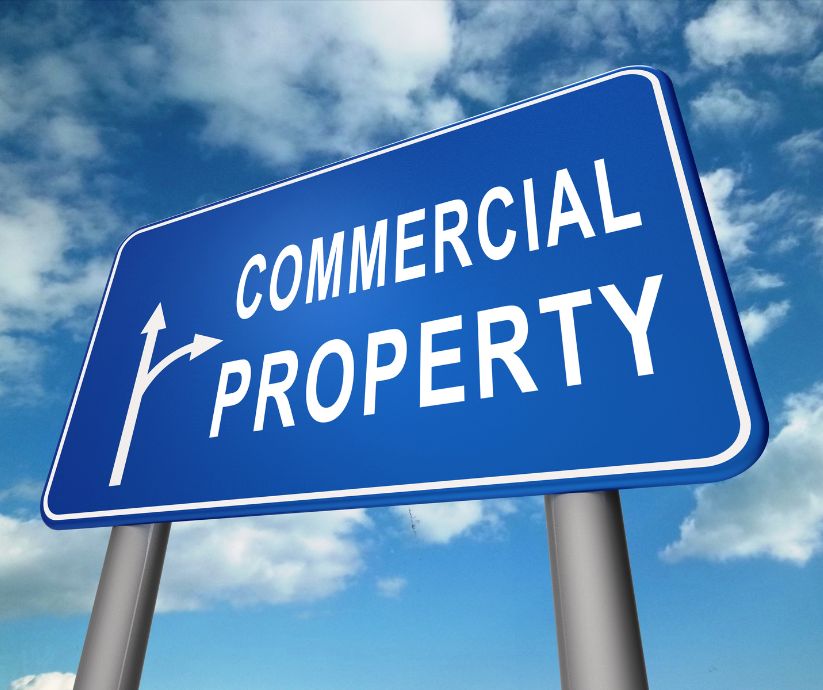How to Value Your Commercial Property for Sale

How to Value Your Commercial Property for Sale: A Comprehensive Guide
Today, we’re going to delve into a topic that aligns perfectly with your expertise: How to Value Your Commercial Property for Sale. In this comprehensive guide, we’ll explore the intricacies of property valuation, from understanding the market context to strategies for boosting property value. Let’s embark on this journey to equip you with valuable insights into the art and science of commercial property valuation.
1. Introduction to Commercial Property Valuation
The process of valuing a commercial property for sale is a critical step in the world of real estate. Valuation serves as the cornerstone for pricing your property accurately and attracting potential buyers. Different approaches are used to determine the value of a property, including the income, market, and cost approaches. Each approach offers a unique perspective on the property’s value, and understanding these perspectives is essential for making informed decisions.
How to Value Your Commercial Property for Sale
2. Understanding the Market Context
Before diving into the valuation methods, it’s crucial to understand the market context in which your property exists. Analyzing market trends, studying comparable properties, and collecting relevant data are fundamental steps. This data-driven approach allows you to make accurate assessments based on the current market conditions, ensuring that your valuation aligns with the realities of the real estate landscape.
3. Income Approach to Valuation
The income approach focuses on the property’s potential to generate income. This method is particularly relevant for income-generating properties like office buildings, retail centers, and apartment complexes. The key is calculating the Net Operating Income (NOI) by subtracting operating expenses from potential rental income. Applying a capitalization rate to the NOI provides an estimate of the property’s value based on its income potential.
4. Market Approach to Valuation
The market approach, also known as the sales comparison approach, involves comparing your property to similar properties that have recently sold. This method is based on the principle of substitution, assuming that a rational buyer would pay no more for a property than the cost of acquiring a similar one. By analyzing comparable sales and making adjustments for differences, you can arrive at a market-driven valuation.
How to Value Your Commercial Property for Sale
5. Cost Approach to Valuation
The cost approach focuses on the cost of replacing the property with an equivalent one. It’s particularly relevant for properties with unique features or properties where income generation is not the primary goal. Estimating the replacement cost and accounting for depreciation provides insights into the property’s value based on its physical attributes.
6. Factors Influencing Commercial Property Valuation
Various factors influence the value of a commercial property. Location plays a pivotal role, as properties in prime areas are often valued higher due to their accessibility and potential for attracting customers or tenants. Property size, layout, condition, and age also contribute to valuation. A well-maintained property in a desirable location is likely to command a higher value.
7. Legal and Regulatory Considerations
Legal and regulatory factors can significantly impact property valuation. Zoning regulations dictate how a property can be used, which in turn affects its value. Environmental restrictions and assessments also play a role, as properties with potential environmental liabilities may face diminished value. Being aware of these considerations is crucial for accurate valuation.
8. The Role of Professional Appraisers
Certified appraisers bring their expertise to the valuation process. With qualifications and experience, they provide an unbiased assessment of a property’s value. Collaborating with appraisers ensures that your valuation is based on industry standards and aligns with the expectations of potential buyers.
9. Data Analysis and Interpretation
Data analysis is at the heart of property valuation. Leveraging sales data, market trends, and statistical analysis enhances the accuracy of your valuation. Interpreting these findings in the context of the property’s unique characteristics leads to well-informed decisions.
How to Value Your Commercial Property for Sale
10. Challenges and Complexities in Valuation
Valuing commercial properties is not without its challenges. Unique or specialized properties may lack comparable sales data, making valuation more complex. Economic volatility and market fluctuations add another layer of complexity. Overcoming these challenges requires a strategic approach and a deep understanding of the property’s nuances.
11. Data-Driven Valuation Decisions
Technology and software tools play a vital role in property valuation. Integrating data sources from platforms like Google Analytics, HubSpot, and Hootsuite provides valuable insights into market trends and buyer behavior. Utilizing these tools empowers you to make informed decisions based on real-time data.
12. Strategies for Increasing Property Value
Enhancing property value is a strategic endeavor. Improving aesthetics, functionality, and infrastructure can attract higher offers from potential buyers. Upgrading systems and amenities enhances the property’s appeal and justifies a higher valuation.
13. Valuation in Different Commercial Real Estate Sectors
Different sectors of commercial real estate require tailored valuation approaches. Retail, office, industrial, and multi-family properties have unique characteristics that influence their value. Understanding industry-specific factors is essential for accurate valuation.
14. Legal and Ethical Considerations in Valuation
Transparency and ethical considerations are paramount in property valuation. Full disclosure of property information and avoiding misrepresentation are ethical imperatives. Upholding these values ensures that your valuation process is fair and unbiased.
How to Value Your Commercial Property for Sale
15. Selling Strategies Based on Valuation
Property valuation directly influences your selling strategy. Pricing the property competitively based on its value attracts potential buyers. Crafting effective marketing campaigns that highlight the property’s unique features and value proposition further enhances its appeal.
16. Long-Term Investment Considerations
Property valuation isn’t just about immediate sales; it also influences long-term investment decisions. Analyzing potential rental income, forecasting appreciation, and aligning valuation with investment objectives are essential steps for successful long-term investments.
17. Industry Trends and Innovations
The world of property valuation is evolving with technology and data-driven insights. Automated Valuation Models (AVMs) leverage big data and AI to provide quick property estimates. Staying updated on these trends empowers you to integrate innovative approaches into your valuation strategies.
18. Navigating Tax Implications
Property valuation has implications for taxes. Understanding how property tax assessment relates to market value is crucial. Collaboration with tax professionals ensures that your valuation decisions align with tax strategies.
19. Case Studies in Commercial Property Valuation
Real-world examples provide valuable lessons in property valuation. Examining both successful valuations and challenges faced by industry professionals offers insights that can inform your own strategies.
20. Continual Learning and Improvement
Property valuation is a dynamic field. Staying updated on market trends, learning from previous experiences, and evolving your strategies based on new insights are essential for continued success in property valuation.
How to Value Your Commercial Property for Sale
Conclusion: Empowering Your Valuation Journey
In the realm of commercial property valuation, your expertise as a digital marketer and search engine optimization expert positions you to excel. By seamlessly integrating data-driven decision-making with your passion for social media marketing and data analysis, you can craft a comprehensive strategy that maximizes the value of your commercial property for sale.
The journey of valuing a commercial property is multifaceted, requiring a strategic problem-solving approach. From understanding market conditions to employing advanced valuation methods, each step contributes to your success. The case studies and industry trends showcased in this guide highlight the real-world applications of valuation theory, offering insights that transcend the confines of textbooks.
Embrace the challenges and opportunities that come with property valuation. Whether you’re navigating the intricacies of legal regulations, fine-tuning your selling strategy, or exploring the potential of technology-driven innovations, your journey is one of continual learning and growth.
How to Value Your Commercial Property for Sale
FAQ
Q1: What is the importance of valuing my commercial property before listing it for sale? A1: Valuing your commercial property provides an accurate foundation for setting a competitive price that attracts potential buyers and maximizes your returns.
Q2: How does the income approach to valuation work, and when is it most applicable? A2: The income approach calculates property value based on its income potential. It’s ideal for income-generating properties like offices and retail centers, where net operating income (NOI) is a key factor.
Q3: Can you explain the market approach to valuation and its role in determining property value? A3: The market approach involves comparing your property to recently sold comparable properties. It’s a valuable method for understanding how similar properties are valued in the current market.
Q4: What factors should I consider when estimating the replacement cost in the cost approach? A4: Replacement cost estimation involves considering factors like construction materials, labor costs, and depreciation. This approach is particularly useful for properties with unique features.
Q5: How can I ensure my property’s valuation aligns with legal and regulatory considerations? A5: Zoning regulations and environmental assessments can impact value. Collaborating with professionals who understand these aspects ensures your valuation is legally compliant.
Q6: What qualifications should a certified appraiser have, and how can their expertise benefit me? A6: Certified appraisers possess industry expertise and training to provide unbiased property valuations. Their insights help you make informed decisions.
Q7: How can data analysis enhance the accuracy of my property valuation? A7: Data analysis, aided by platforms like Google Analytics and HubSpot, provides insights into market trends and buyer behavior, contributing to precise valuations.
Q8: What are some effective strategies for increasing the value of my commercial property before sale? A8: Enhancing aesthetics, functionality, and infrastructure, along with upgrading amenities, can significantly boost the perceived value of your property.
Q9: How can I apply valuation techniques to different sectors of commercial real estate? A9: Different property sectors require tailored valuation approaches. Understanding industry-specific factors helps you arrive at accurate valuations.
Q10: What role do case studies play in understanding successful property valuations? A10: Case studies provide real-world examples of valuation strategies in action, offering valuable insights into effective approaches and potential challenges.
By addressing these frequently asked questions, you’ll gain a deeper understanding of how to navigate the complexities of valuing your commercial property for sale effectively.
